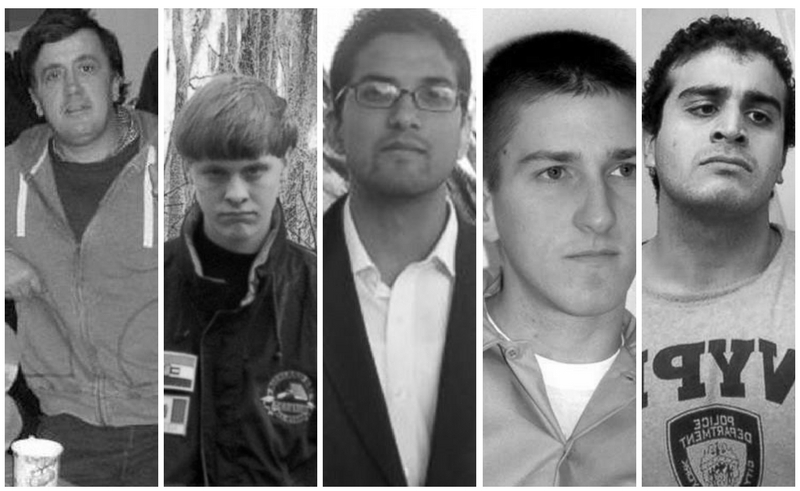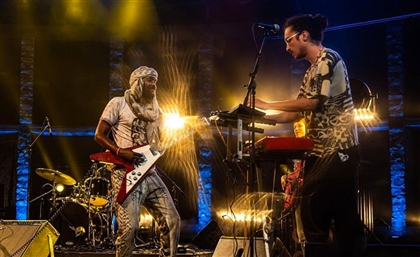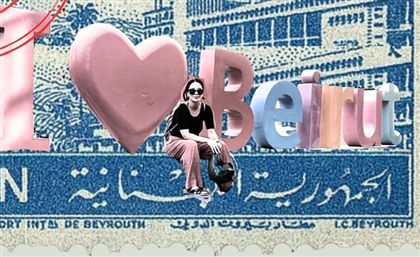The Finsbury Park Attacker Who Mowed Down Muslims Is White. But Is He a Terrorist?
[Op-ed]: Our token white millennial, Charlotte Swan, weighs in on the political weight of the word 'terrorist' and why its correct usage matters.

On the morning of June 19th, a man drove a van into a crowd of people just outside a house of worship in a north London neighborhood, leaving one dead and 11 wounded. British Prime Minister Theresa May called the event a “terrorist attack,” and media outlets soon followed, using May’s terminology to describe the scene. The words used in reference to the aforementioned events would have been a completely average account of a heartbreaking, increasingly common occurrence, except for a few major details: the driver was a middle-aged white British man named Darren Osborne and the victims were Muslims, run down outside a mosque; yet the events which transpired had been referred to as a terrorist attack.
Something I have learned while growing up in post-9/11 America is that white men are not terrorists. These particular men who kill are mentally ill, victims of psychology rather than ideology. The media will find a way to explain how some other force led them to commit these terrible crimes. They are psychopaths –or even provoked, in the chilling case of Elliot Rodger - perhaps driven to madness by external forces beyond their control. But white men are not terrorists, or at least, we do not call them so.
The purest definition of the term 'terrorism' covers a wide umbrella, simply referring to unlawful violence used to intimidate people for religious, political, or social means; however, over at least the last 15 years, the term 'terrorist' in Western parlance has been co-opted to refer almost exclusively to Islamist extremists. Language is mutable and evolution over time is a normal linguistic phenomenon, but the shifting of the semantic boundaries of the term 'terrorism' is a racially and politically charged act which should not be ignored. Language can be used as a subtle act of political violence against minorities, which is precisely what has occurred over time with the vocabulary surrounding terrorism. In my opinion, the narrowing of the definition of terrorism is propaganda used to perpetuate the concept of ‘otherness;’ the idea that there are irreconcilable differences that separate Westerners from outsiders, from others who would ostensibly forcibly import their customs and values and eradicate white, Christian mores. The gap between white terrorists and 'real' terrorists has little to do with their ideology or methodology. It is a semantic divide that shifts blame, based overwhelmingly on criteria dependent on the attacker’s colour or religion.
The real definition of terrorism perfectly describes the Charleston massacre in 2015, in which a known white supremacist shot and killed nine African-American churchgoers during a Bible study; yet American media was overwhelmingly reticent to use the hated moniker in reference to Dylann Roof. His mental health was cited as the driving force behind his acts of violence, even though there was abundant proof to indicate that his motives were ideological. Because in the US whiteness is viewed as a default, it is wholly unthinkable for some people to consider Roof and his ilk terrorists. To them, terrorists seek to destroy their livelihood, their sense of security, and attacks on religious or cultural minorities do not fit this narrative.
To call these disturbing acts of violence terrorism is to admit to being capable of a kind of ugliness that no one wishes to see in themselves, a crime so vile that it is anathema to the very core of our humanity. The power of language is such that it shapes our perception of reality, and to apply the word 'terrorism' to white acts of violence is a rejection of the concept of otherness. It is a natural desire to seek distance from acts which are morally reprehensible, but white terrorists and 'stereotypical terrorists' have more in common than one might be led to believe. 98% of mass killings are perpetrated by men, and according to FBI data, in 54% of mass shootings in the US between 2009 and 2016, the perpetrator shot an intimate partner or family member. Omar Mateen, the Pulse nightclub shooter, regularly intimidated and beat his ex-wife. Osborne, the alleged Finsbury Park van driver, is described by some as a frequent heavy drinker, often seen verbally berating his wife and children. Make no mistake, these mass killers are terrorists. Both types of terrorists are often found embracing the same misogynistic rhetoric. Race, politics, misogyny, and religion are all motivations for terrorism, but the resulting violence is not always called terrorism.
I find the British media’s usage of the term 'terrorism' in reference to this week’s Finsbury Park attack to be politically significant. A white supremacist is no less a terrorist than an Islamist. Openly calling the event a terrorist attack is in many ways a statement of acceptance of minorities, a statement that tells people that Muslims are British, that immigrants are British, and that an attack on minorities is an attack on all British people. It is my hope that Western media will let go of its reluctance to properly label acts of domestic terrorism and allow for a more effective dialogue to take place — one that is more nuanced and constructive than the divisive 'us vs. them' mentality which only encourages more radical violence. Terrorists come in all colours and religions, and an attack on any of us is an attack on all of us. It is imperative that we start labelling terrorism for what it is, and that we stop using language to absolve certain criminals of blame.
Darren Osborne is white. And Darren Osborne is a terrorist.
Pictured above, from left to right: Darren Osborne, Dylann Roof, Syed Rizwan Farook, Timothy McVeigh, Omar Mateen
*The views expressed in this op-ed are the author's and don't necessarily reflect CairoScene's.
























